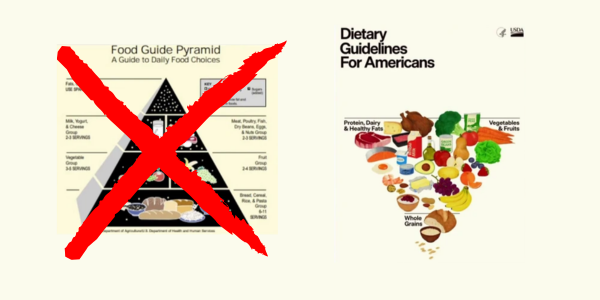



A recent monthly webinar with my students and graduates of The Nutrition Academy, was all about sugar. We covered lots of interesting information, so I thought I’d share it here.
There are many sweeteners on the market – in fact, sugar is known by 70 plus different names. The list seems endless, all the way from glucose to agave to white grape concentrate and beyond. There is a list at the end of this article, but it is still probably not complete.
The more savvy the consumer becomes, the more food manufacturers want to change how we perceive sugar. There is also, and has been for quite some time, a negative connotation with the word ‘sugar’, so there is an increase in sugar alcohols (polypols), artificial sweeteners, man-made sugar, synthetic-biology-made sugars and those simply made in a chemical laboratory.
There are natural sugars that humans have consumed for thousands of years. Honey is one of them. As well as eating meat, poultry and tubers, the Hadza Tribe in Tanzania also include honey as a big part of their diet.
Even sugar cane has a long 10,000 year plus history. It wasn’t until the mechanisation of sugar cane harvesting occurred in 1938 that it became abundant. Sugar cane is a tropical grass that grows between 3 and 6 metres high, unlike sugar beet (which is now genetically modified and Roundup ready). It’s perennial, meaning it doesn’t need to be planted every year. When sugar cane is harvested it can be cut just above the root level so new sprouts will grow, ready to be harvested 10 to 12 months later. I have small amounts of sugar cane growing on the Changing Habits farm. It can be cut and chewed for a really sweet taste.
Eighty countries in the world now produce sugar. When I was driving north through Queensland last August I noticed an enormous amount of sugar crops and wondered why the world needed so much sugar. I know there are several uses including alcohol (rum), ethanol for fuel for cars, as a base for other sugars, to name a few.
Real, traditional maple syrup comes from the maple water/sap of the maple tree. The water is semi sweet when harvested but once it’s concentrated, the syrup shines through. Many maple syrups on the market are fake, with flavours, thickeners, sugars and colours.
Palm sugar, coconut sugar and coconut nectar have also become natural popular sweet commodities. I personally have chosen not to have it as part of the Changing Habits range due to the non-sustainability of the sugar. Using the nectar leads to a reduction in bees and the reduced production of the coconut, which becomes another tree. A small percentage of these sugars can be sustainable, but you will need to know where it comes from to be sure.
Unrefined cane sugars including rapadura, sucanat, panella and jaggary pilonicillo to name a few are minimally processed and they contain antioxidants, vitamin A, B1, B2, B6 and niacin. Just 1 tsp gives you 11% of the RDI for iron. Whereas beet sugars are now genetically modified and Roundup ready.
I’ve written an article on monk fruit and thaumatin – you can read it here. They are not my favourite sugars, nor are any of the artificial sugars on the market. I’ve written about them in my book Lab To Table.
I’ve also written an article on synthetic biology and stevia, which you can read here. Natural stevia herb is very different to what you find in the white powder and liquids found in processed foods.
These sugars include erythritol, glycerol/glycerin, hydrogenated starch hydrolysates (HSH) maltitol, mannitol, sorbitol and xylitol. They are seen in many processed foods. They are made in a chemical laboratory and are neither an alcohol (they don’t contain ethanol), nor a simple sugar, but rather a carbohydrate. Their natural counterparts like xylose and mannose can be found in food like blackberries, broccoli, spinach, green beans, okra, cabbage, turnips, shiitake mushrooms to name a few.
I’m a nature lover; I’m not one to trust what is done in a laboratory with our food supply. I would much rather use the natural sugars in their whole form and within food as a source of sugar, for not only energy in the body, but the important sugars that are required for cell communication, including xylose and mannose. You can read all about this in my book Lab To Table.
The most used sugar alcohols which can also be termed as polyols (that’s the P that you see in FODMAP) are xylitol and erythritol. I’ve seen them in processed foods, from protein powders and bars to chewing gum and toothpastes.
Xylitol can be extracted from the following: birch and beach tree, oat hulls, corn cobs and stalks, coconut shells, almond shells, straw, bagasse and cotton seed hulls. The xylose is extracted using acid hydrolysis and purification, then among other steps, hydrogenation of the xylose makes a pure mixture of xylitol. I don’t know about you, but I can’t do this in my kitchen so I’m not sure I want it in my food supply. I’m also dubious about the fact that some of the things xylitol is made from is GM derived. I’m not prepared to support these industries, so I choose not to consume xylitol.
This polyol has become increasingly popular in industry. Chemically synthesising this sugar alcohol is complicated and commercial production is based on fermentation, using a fungi that produces erythritol when fed glucose. So, biotechnology has stepped in, genetically modifying a unicelled bacteria (synechocystic sp. PCC68o3). By the use of photosynthesis, more erythritol can be made for the market and this ticks the box for optimising production. Another example of more synthetic biology to produce food additives.
Maltitol is prepared by the hydrogenation of maltose. Maltose comes from maltodextrin, maltodextrin comes from corn (GM), potato, wheat, tapioca and rice. Each one of the extractions uses hydrolysis, enzymes and acids to break the starch into smaller pieces (partially hydrolyzed starch) – resulting in a white powder.
Mannitol is normally obtained by the hydrogenation of invert sugar. An invert sugar is a mix of glucose and fructose. It can also be made by microbiological methods using fructose, this is done by genetically modified microbes, synthetic biology. Mannitol can also be extracted from seaweed. The problem will be when you see mannitol on the ingredient list – how do you know which one will it be?
Long-term studies on all of these sugars are just not there. Once you know how they are made, then it’s up to you whether you will choose to consume them.
Everyone has a different tolerance to carbohydrates and simple sugars. Many tout the glycemic index and glycemic load as good predictors.
The glycemic index is a numeric score given to a food based on how quickly it makes your blood sugar rise. Foods are ranked 0 to 100, with glucose given a value of 100. The lower the index, the slower the blood sugar rises after eating that particular food (usually foods with more fibre).
The glycemic load tells you not only how quickly the glucose enters the blood stream but how much glucose per serving it can deliver. For instance, watermelon has a GI of 80, but because in one serving of watermelon there is very little carbohydrate, it has a glycemic load of only 5.
Having said that, it is also a very individual pursuit (depending on the health of the person) and the time of day. In the book The Circadian Code, Dr Panda points out that glucose and carbohydrate tolerance changes throughout the day.
Depending on where the individual is on their pursuit to health will depend on their tolerance to carbohydrates. Someone with insulin resistance, diabetes and/or metabolic disease will have less tolerance to carbohydrate than those that do not have pre-existing chronic disease.
I’m old fashioned. I’m happy to get back into the kitchen to feed and nourish my extended family to heal the burden of disease we now see in modern society. Using natural, old-fashioned sugars like honey, maple syrup and rapadura sugar is one of my tools.



Has The Nutrition Academy changed your life the way it did for Lee? Please let us know by leaving a review on Google or shooting us a DM — we would love to share your story with our community!
↳ follow the link in our bio

If your goals this year include managing your weight, don`t turn to laboratory-made shakes, make your own! Cyndi suggests blending an egg and some fruit together for a protein boost, or high-satiety fruit likes apples, bananas and avocados blended with Greek yoghurt and water. Low ingredients and high nutrition is ideal if you`re looking to chase good health.

To all of our students, how can we support your studying journey this year? Let us know below!

It is a phenomenon for humans to find novelty and newness inspiring. This `temporal interruption` of the daily drudge inspires us to change our life, but you can change your life in any way and any time you want. You have the power over your own life, not the flip of a calendar.

You may think the food you ate or the way you lived five years ago should not have an effect on how you live now, but unfortunately the body is too clever for that. This is one reason why consistency of good habits and good health is even more important than perfection or fad diets.

Foraging is an amazing skill that many people should learn for a variety of reasons. Have you had much experience with `living off the land`?

You`ve probably been thinking about or trying to meet your New Year`s Resolutions. Before you commit (for a month) to going to the gym 5 times a week, learn more about how exercise impacts you at this phase of your life.

It`s happening! For those of our community who live on the Sunshine Coast, or are able to travel from South-East Queensland, Cyndi will be talking in the library. Join her at this amazing real food workshop at any of the dates and libraries outlined in the post. Book your ticket via the link in our bio.
↳ follow the link in our bio

Take some time this weekend to reflect on the past and make plans for the future, then take steps towards your future. Don`t spend all of 2026 stuck in the past, and use it only to to propel you through the future.

Vitalism is the foundation of our courses at The Nutrition Academy. What does vitalism mean to you?
